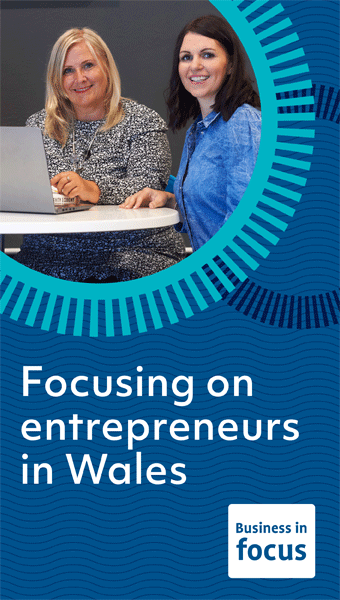J.P. Morgan Private Bank today released the results of its second-annual Top 200 Female-Powered Businesses report, which revealed contrarian expectations surrounding the path to female wealth equity, their role in the UK economy and sectors in which these businesses operate.
How ownership impacts female wealth equity
The report, showcasing the fastest growing UK businesses powered by women, reveals that whilst female powered businesses are attracting an increasingly large amount of equity investment – a record £5.05 billion in 2021 – female founders are more vulnerable to the dilutive effect of equity funding than their male counterparts.
“The data shows us that when female founders do raise equity, they give up a larger percentage of their ownership than male founders,”
said Charlotte Bobroff, senior advisor to women entrepreneurs across the UK at J.P. Morgan Private Bank.
“In fact, the rate at which women own less of their companies as equity investments increase is almost twice that of men, a 25 percent reduction compared to 13 percent. This reflects several dynamics affecting female powered businesses, including a more challenging fundraising landscape and a lack of resources, exacerbating the effect of equity financing. We help bridge this gap by ensuring our female clients receive the right advice from the outset, structure their wealth efficiently to ensure they are in the best position at the point of negotiations and are exposed to female investors that understand the unique dynamics they face.”
Female-powered refers to high-growth companies that are founded or led by women, majority owned by women, or have a management team that is at least 50 percent female. Globally, ownership of a business by a minority is an important criterion for schemes that aim to promote equality, diversity and inclusion. “Since publishing our first report last May, it is encouraging to see that nine of the businesses recognized last year have successfully exited from the private space – three via IPO and six underwent an acquisition. Prior to exiting, these businesses raised more than £336 million of equity investment,” Bobroff said. “Seeing these success stories is conducive to changing the landscape of entrepreneurs in the UK.”
Women-run businesses are a vital source of innovation in the UK economy
The role of female-powered businesses, and the employment opportunities they provide, are critical as UK government removes Covid-19 restrictions and support. These 10,647 businesses are contributing significantly to the UK’s economy, reporting record sales of £84.7 billion and total headcount of almost 700,000, meanwhile attracting £5.05 billion of equity investment in 2021.
“Whilst more than 30 percent of high-growth companies powered by women reported increasing employment more than 20 percent over the last decade, employment growth versus men during the most recent filing period decreased nearly 42 percent,”
Bobroff said.
“Whilst disappointing, it comes as no surprise that Covid-19 disproportionately impacted women, falling at a faster pace than male employment globally.”
The sectors that make up the largest proportion of female powered growth are businesses that also correspond with larger numbers and shares of women in the sector's workforce. Sector-wide, although digital sectors make up many companies powered by women in 2021, it was within industries such as clothing, clothes shops, healthcare products and e-commerce that female-led businesses excelled against the wider market. The regional distribution of high-growth businesses outside of London (3,754 companies), included the South East (1,431), South West (758) and North West of England (775).
Within emerging sectors, artificial intelligence (301), fintech (224) and edtech (184) had the largest number of female-powered businesses, whilst the largest number as a percentage of high-growth businesses was the sharing economy (36.9%), eHealth (33.7%) and the “quantified self” (32.9%) sector.
Commentary from the Top 20
- No.1 Trinny Woodall, Trinny London – Trinny London not just female founded but, the company is 85 percent female too. The dynamic of the people and personalities is key in a business that is made up of majority women. For hiring, thinking of that balance is key, irrespective of gender to make sure different styles and personalities shine through. It is a journey getting to the stage where you have a physical product that meets both the expectations and quality of the vision. When Covid hit, we were in a completely unknown circumstance and pivoted the business throughout this growth phase, creating 3,000 virtual appointments in a day and grew our customer base – the Trinny Tribe – from 95,000 to 250,000 in one year. In a post-Covid world, we must think about how teams work in different ways and be able to provide that flexibility for working environments, whilst placing a huge focus on having those water cooler moments to spark innovative ideas.
- No. 5 Melanie Marsden, Lounge Underwear – As the brand continues to grow, and mostly importantly to me – as our community continues to grow – what excites me most is the fact that our voice is bigger, louder and more capable of making change within the underwear industry and beyond. I take full responsibility of the power the brand voice and all we can share and say to the young women and next generations of the world. It's a confusing, exciting and ever-changing world that the young people of today are growing up in, so the fact that Lounge is able to steer the conversations and realities for the next generation is always a key focus and driver for me personally. Our biggest adaptation was certainly one for our people and our culture. Overnight, as if by the flick of a switch, we had to send our whole team home and pivot almost instantly to make sure the business could still scale at pace and cope with never-before-seen demand, all whilst – what makes us what we are – our culture and connectivity of our people – was pulled out of the office and into our homes. But in many ways, I reflect on this and believe this did in fact make us stronger as a unit and actually made us all realise collectively that the buzz we have in our office is so unique and something we all thrive on.
- No. 10 Baroness Joanna Shields, BenevolentAI – Innovation is not something you can take for granted. You must be intentional and create the conditions for ideas to thrive and a culture where people can push boundaries. At Benevolent, we are building an AI platform that harnesses vast quantities of biomedical information to enable scientists to discover new and better ways to treat disease. It can sometimes feel like we are building and flying the plane at the same time. Our pandemic story was a unique one in that it enabled us to demonstrate the value of our technology and how it empowers scientific discovery in previously unimaginable ways. We set out to build a revolutionary drug discovery platform that leverages all available biomedical data, and we created AI-powered tools that allow scientists to reason across the vast and exponentially growing data landscape. On an individual level, I have always felt a profound obligation to lift other women. Female leadership and mentorship is lacking in the tech industry and we must work together to lift each other up and fill the gap.
- No. 13 Tania Boler, Elvie – Beyond attracting investors, some of our most significant obstacles came with building our technology. For example, designing and launching an all-in-one solution capable of solving the breastfeeding problems that women have been enduring for far too long. We hired world-class designers who understood women's needs, placed them at the heart of the design process, and created beautiful products that offered women the best solution. When we first began developing Elvie Trainer, ‘femtech’ wasn’t a term—let alone a category. Nevertheless, it’s been rewarding to be part of the emergence of femtech and raise further awareness of the severe gender gaps in mainstream medicine and technology. Watching the shift in mentality surrounding women’s health and wellness — with Elvie being a vital part of this change —has been fascinating. Ultimately, women don’t just deserve better tech; they’re demanding it. As a female entrepreneur, carving out space in a male-centric world is never easy. It can be intimidating to jump into something when you haven’t seen many examples set by other female friends or leaders.







